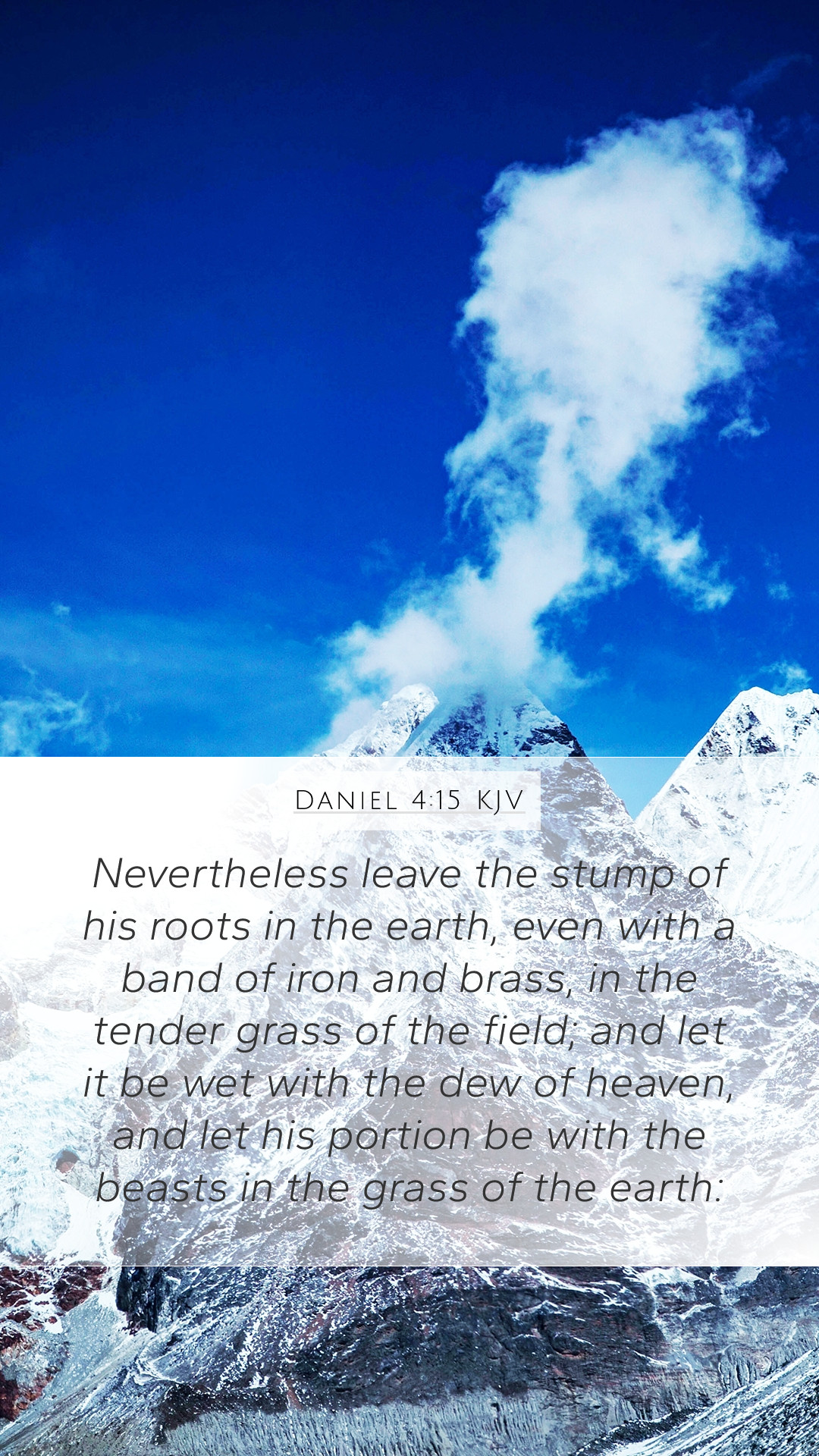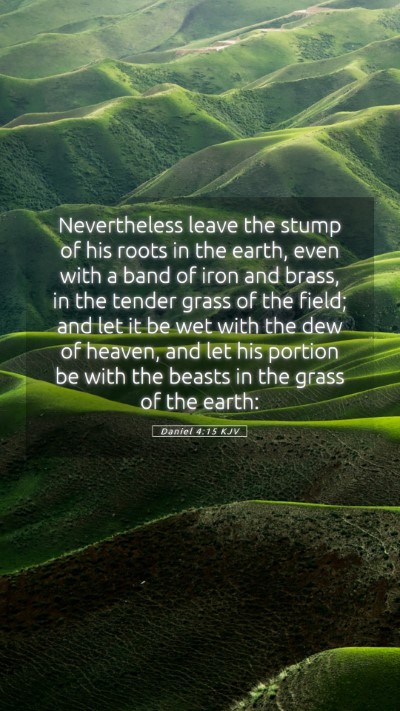Understanding Daniel 4:15: A Comprehensive Bible Verse Commentary
Daniel 4:15 states: "But let a stump and its roots be left in the earth, bound with a band of iron and bronze, in the tender grass of the field; and let it be wet with the dew of heaven, and let his portion be with the beasts in the grass of the earth." This verse comes from a passage where King Nebuchadnezzar receives a dream that represents his impending downfall and humanity's vulnerability.
Contextual Background
In the Book of Daniel, we see a duality where God's sovereignty is shown in contrast to human pride and arrogance. The vision that Daniel interprets for Nebuchadnezzar signifies the king's impending humiliation and restoration. The "stump" represents the remnants of his reign, illustrating the notion of hope after devastation.
Insights from Public Domain Commentaries
This section will delve into the insights provided by various public domain commentaries on this verse.
-
Matthew Henry:
Henry posits that the "stump" symbolizes a remnant of strength that remains during adversity. It denotes that while Nebuchadnezzar would face humbling circumstances, there remains a potential for recovery and a return to favor, showing God's mercy amid judgment.
-
Albert Barnes:
Barnes emphasizes the significance of the "band of iron and bronze," illustrating that while great punishment is forthcoming, there is protection over the remnants of the king’s reign, indicating God’s control and the restraining of complete destruction.
-
Adam Clarke:
Clarke interprets the "dew" as a sign of divine nurture and presence, suggesting that even in the lowliest of conditions, God sustains those who acknowledge Him. The imagery evokes both judgment and grace, showing that God’s plans encompass both elements.
Bible Verse Interpretations
The interpretations of Daniel 4:15 highlight several theological themes:
- God's Sovereignty: The verse is a testament to God’s supreme authority over rulers and nations. It signifies that even a powerful king, like Nebuchadnezzar, is ultimately subject to divine will.
- Humility and Restoration: The presence of the stump indicates that although Nebuchadnezzar will be humbled, he isn’t forsaken, representing God’s willingness to restore those who turn back to Him.
- Symbolism of Natural Elements: The natural imagery used throughout the passage showcases the interconnectedness of humanity with God’s creation, portraying a reminder of human fragility in contrast to divine sustainment.
Bible Study Insights
For those seeking bible verse meanings, bible study insights, or scriptural analysis, Daniel 4:15 serves as a rich passage for exploration:
- Historical Context: Understanding the Babylonian context helps elucidate the cultural backdrop of pride and the king's eventual realization of his dependence on God.
- Application of Scripture: This verse can inspire modern-day readers to reflect on the importance of humility in leadership and the recognition of divine authority in their lives.
- Community Reflection: This verse can lead to engaging discussions in bible study groups regarding how divine intervention manifests in personal and communal struggles.
Cross References
Daniel 4:15 resonates with several other passages that share thematic elements of divine authority and restoration:
- Isaiah 40:23-24: Highlights God's sovereignty over rulers.
- James 4:10: Encourages humility before the Lord for exultation.
- Psalms 75:7: States that promotion comes from God alone.
Conclusion
Understanding Daniel 4:15 and its implications offers profound insights into the nature of God's judgment and mercy. This verse affirms that while humanity may face trials as a consequence of pride and arrogance, there is always a pathway to restoration through humility and the acknowledgment of God's supreme authority.


